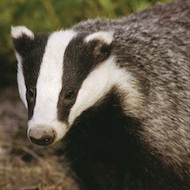Badger cull report findings leaked to media

The findings of an independent panel have been leaked and reported by the BBC.
Last year's pilot badger culls in Somerset and Gloucestershire were ineffective and failed on humaneness, according to leaked findings reported by the BBC.
The culls were authorised by Defra to limit the spread of TB in cattle. Pilots in both areas were extended after marksmen failed to meet their targets.
Defra appointed an independent expert panel (IEP) to assess the effectiveness, humaneness and safety of the pilots.
According to leaked report findings published by the BBC, the culls failed on humaneness as up to 18 per cent of badgers culled took longer than five minutes to die.
Furthermore, analysis showed the number of badgers culled fell far short of the necessary targets.
Responding to the media reports, BVA president Robin Hargreaves said: "It is important to remember that these culls were pilots precisely because the Government needed to test the humaneness, safety and efficacy of controlled shooting as a method of culling badgers.
"Indeed, BVA called for controlled shooting to be tested and critically evaluated before it was rolled out.
"We are unable to comment in detail on the findings of the IEP until we have seen the report and had time to review all of the information, but if these figures are true then they would certainly raise concerns about both the humaneness and efficacy of controlled shooting.
"We will look at the published report in detail and consider BVA’s position in light of the IEP’s findings. We have always stated that if the pilots were to fail on humaneness then BVA could not support the wider roll out of the method of controlled shooting."
The findings of the IEP have not yet been officially published.



 The Greyhound Board of Great Britain has published new vaccination guidance, with all greyhounds registered from 1 January, 2027 required to have the L4 leptospirosis vaccination, rather than L2.
The Greyhound Board of Great Britain has published new vaccination guidance, with all greyhounds registered from 1 January, 2027 required to have the L4 leptospirosis vaccination, rather than L2.